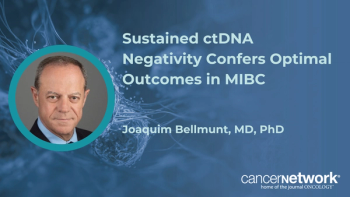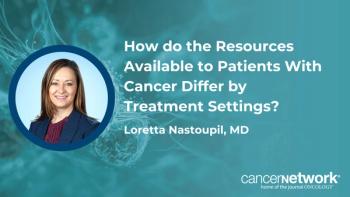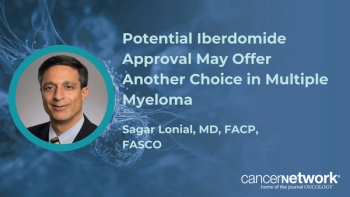
Panitumumab Failed in KRAS Wild-Type Biliary Tract Cancer
Adding the EGFR-targeting drug panitumumab to chemotherapy had no effect on survival in a group of patients with wild-type KRAS status advanced biliary tract cancer.
Adding the EGFR-targeting drug panitumumab to chemotherapy had no effect on survival in a group of patients with wild-type KRAS status advanced biliary tract cancer BTC,
According to Francesco Leone, MD, of the University of Turin Medical School, Italy, and colleagues, when the trial was designed there was preclinical evidence that EGFR inhibition may have a role in the treatment of BTC. Unfortunately, since then, this trial and several others looking at monoclonal antibodies or kinase inhibitors have had disappointing results.
“Because data have been obtained from many similar studies, a pooled analysis of the results could help in identifying the patients who may benefit from anti-EGFR therapy,” wrote Leone and colleagues in Cancer. “Until then, the history of anti-EGFR therapy in BTC does not deserve further investigations, and we have to explore alternative strategies for future trials for such a rare and varied disease.”
This phase II trial included 89 patients with chemotherapy-naive BTC enrolled between 2010 and 2013. All patients had wild-type KRAS status and received treatment with gemcitabine and oxaliplatin with (n = 45) or without (n = 44) panitumumab 6 mg/kg for up to 12 cycles.
With a median follow-up of 10.1 months, no significant differences in progression-free or overall survival were observed. The median progression-free survival was 5.3 months for patients assigned panitumumab compared with 4.4 months for those on chemotherapy alone (hazard ratio [HR], 0.78; P = .27). The median overall survival was 9.9 months with panitumumab and 10.2 months without it (P = .42). In addition, no significant differences were observed for overall response rate between the two treatment arms (26.6% vs 18.1%).
In a subgroup analysis, the researchers found that patients with intrahepatic cholangiocarcinoma (IHC) assigned to panitumumab had a 3.3-month improvement in overall survival compared with patients not assigned panitumumab; however the difference was not statistically significant.
“The reason for this finding is difficult to interpret because of the lack of statistical significance. However, other studies have also shown a trend toward better outcomes for IHC patients treated with anti-EGFR–targeted agents,” the researchers wrote. “Our findings themselves do not justify the design of a new randomized clinical trial in this setting of patients; however, we think that data from available studies should be put together to draw more solid conclusions.”
The treatment was generally well tolerated in both arms of the study. The main toxicity observed in patients assigned panitumumab was skin toxicity (80%).
Newsletter
Stay up to date on recent advances in the multidisciplinary approach to cancer.



















































